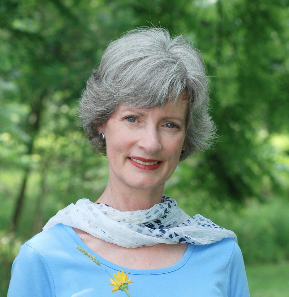Forgiveness, as an abuse survivor, can be a complex issue; at least it is a topic that causes deep introspection and confusion for me. As a child, continually asking forgiveness for what my abusers did, kept me alive. When I began my healing work, I realized that my abusers needed to ask my forgiveness for the harm they had done. They didn’t. Rather than continuing to stew in my rage and hurt, I needed to find a way to forgive them. What does it mean to forgive three men who weekly, for eighteen years of my childhood and adolescence, sexually abused and tortured me? What does it mean to forgive a mother and grandmother who knew and did nothing to stop them? What does that look like? How does it happen? Should it always happen?
I’ve talked with a lot of people, read a lot of books about forgiveness. No one has the same definition. In my understanding, Buddhism has no concept of forgiveness. Each person must create right standing within himself, approaching the person who caused harm with compassion and without anger. The Hindu faith says the wrongdoer should seek forgiveness, which creates a righteous state. The monotheistic faiths—Islam, Judaism, and Christianity—all point to Allah, YHWH, and God as the final arbiters of forgiveness. They require asking forgiveness of the victim before approaching the Deity. Islam speaks of asking for forgiveness from the wounded party and then Allah as a way to greater favor with Allah. Judaism puts a greater emphasis on repentance, creating formal days for atonement. Christian faith says we must forgive everyone; Jesus even asked God to forgive the Romans who put him to death. The Roman soldiers were doing their job, probably with little opinion about Jesus. Yet, they committed the ultimate violence, caused the ultimate harm.
But my abusers knew what they were doing. It was something they willfully and gleefully chose to do. Did they think of the greater, lasting harm they were inflicting? Probably not. They thought only of the satisfaction of perversion. Seeking a way to forgive them for not seeing me as valuable and worthy of care is challenging, to say the least.
A minister once told me that forgiveness had to include reconciliation with the abuser. I respectfully disagree. When reconciliation continues the harm done, with no remorse or attempt at change on the part of the abusers, it is not possible. Remaining in the old patterns and pretending nothing ever happened, as my family demanded, is not reconciliation. It is a continuation of violence.
Others, whom I deeply respect, His Holiness the Dalai Lama, Archbishop Desmond Tutu, Thich Nhat Hanh, Rabbi Rami Shapiro, among others, say forgiveness is something you offer to help yourself. Whether it helps the wrong-doer is immaterial. I was taught that my purpose was to help others, to serve others. The thought of offering forgiveness for my own benefit flies in the face of the servanthood demanded of me. Yet, this definition resonates. Offering forgiveness helps me find peace.
For me, there is no single act of forgiveness. It is not a one-and-done, nor even the seventy times seven that Jesus mandates. Forgiveness, as I know it, is a gradual releasing of the power of the past on the present. As I’ve healed, I have become more able to see the past as the past, not as an extension into the present. I am more able to recognize and stop behavior patterns of the past, necessary then to survive, but which are now destructive to my happiness and wellbeing. I am slowly beginning to release the fear and vigilance of the past. There is grace in the gift I offer myself.
Forgiveness is the gradual process of seeing the person behind the monster; the wounded child behind the cruel adult. Forgiveness is finding a way to love that wounded child who recreated on another the harm done to him. Forgiveness does not mean excusing or dismissing what was done. It means holding the actions of the adult in tension with the wounded child inside them.
I am beginning to see the wounded child behind my mother, that she was broken long before I was born. She had no ability to help herself; she had no way to help me.
While I abhor my father’s actions and who he became, I can see that he, too, was abused as a child, that he did not have the strength to create a new paradigm as an adult. I see the wounded child he was.
Even as I struggle to have good feelings toward my father and mother, the young-child part of me loves them. I must honor her feelings, creating an equal place for the love she holds with the hate that I, the adult, feel. Forgiveness must include love and compassion toward my own wounded child.
The young parts of me who participated in the abuse in order to survive also need forgiveness. I need to forgive myself for being affected by abuse—forgive that I was not the miracle person who managed to come through hell unscathed. I need to forgive myself that my trauma has caused suffering for those I deeply love. I can say that nothing I did was done with intent to harm. I can see that what was done to me happened without my permission or, because of dissociation, my knowledge. Yet, I still see myself as responsible for all that happened to me and to others because of my trauma. Until I can embrace the reality of my past, I continue to need to offer myself forgiveness. This is ongoing work.
Forgiveness also includes a desire to break the cycle of harm. I have stopped the generational abuse in my family by breaking contact with my birth family. I have parented in vastly different ways than I was parented. When I am wrong or have hurt others, I apologize and look for ways to make amends. By breaking the cycle of harm, I am offering myself forgiveness—that is, the chance to live a life filled with peace and grace.
The slow steady work of removing the constant presence of my woundedness and fear, relegating them to the past, is creating a deep joy in my life. Living each day in the light, without the shadow of fear and sadness; being able to accept love coming toward me without shame; claiming my place in the beauty of creation, create joy. It manifests in small things—watching the baby bunny grow into adulthood, seeing birds feed their fledglings, being bathed by the loving expression on my husband’s face, feeling freer to dance without self-censure. I still hurt sometimes, I still get angry, but more and more I am happy. Perhaps that is what forgiveness is: the ability to find joy in the face of great harm. If so, forgiveness is a gift I offer myself.
For my abusers, I pray that they might find joy. In spite of the harm they did to me, I wish that they may know happiness in the life of denial and pain they have created. That is the way I can forgive them.
How Do you Forgive The Unforgivable?
Finding Grace as an Abuse Survivor

